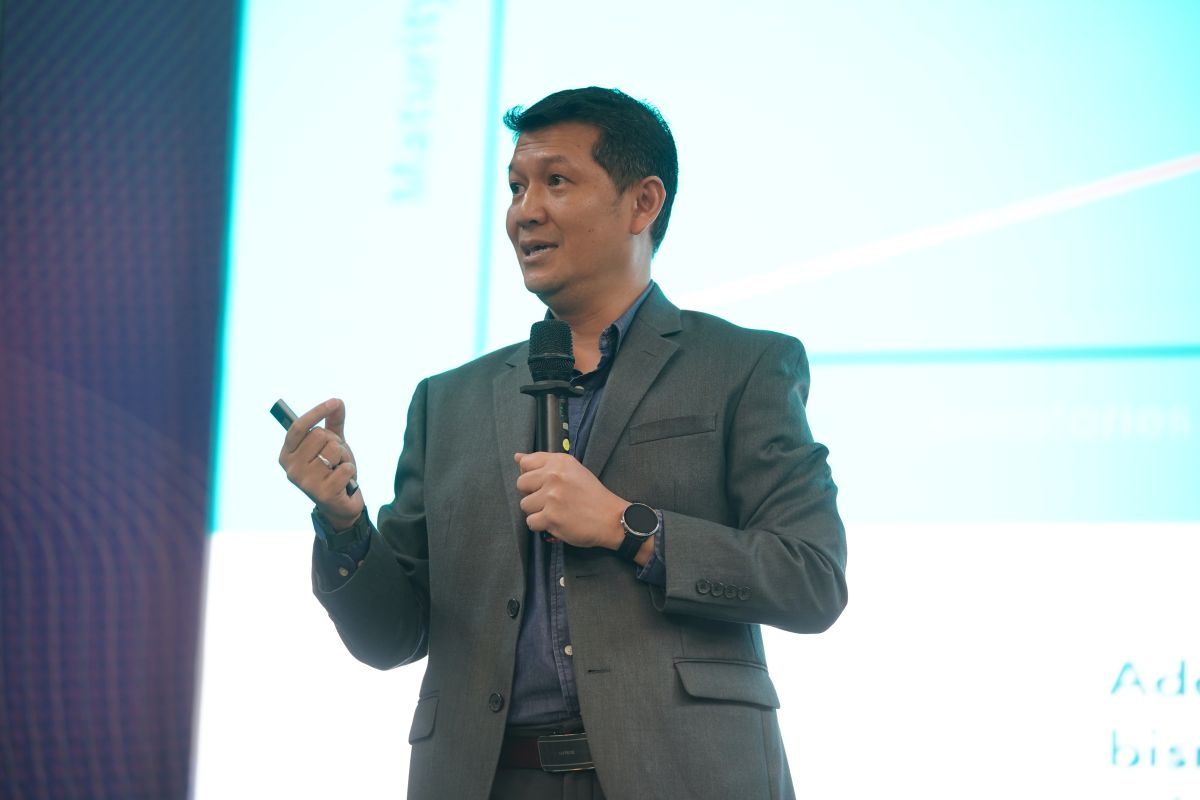IoT Technology Utilization Opportunity in Economy Digitalization
By Adi Permana
Editor Adi Permana

BANDUNG, itb.ac.id—Institut Teknologi Bandung Information Technology Research Group (KKTI ITB) held a Studium Generale (KU), Tuesday (16/02/2021). This general lecture presented one of KKTI-ITB lecturer, Dr. Fadhil Hidayat, S. Kom., M. T., with Dr. Kusprasapta Mutijarsa, S.T., M.T. as a moderator. This lecture was conducted via Zoom for a duration of 90 minutes.
The recent sensational hype of IoT Technology has motivated Dr. Fadhil to share his knowledge in utilizing IoT for economic development.
Generally speaking, according to Dr. Fadhil, IoT is a device that is embedded with internet technology so that it can be called a smart device. There are three main components of IoT, that is (1) things, these include sensor, processor, CPU; (2) connectivity, (3) data processing layer, such as cloud computing, machine learning, and AI. “With these components, we can manage things from a long distance with IoT,” he said.

Furthermore, he explained that IoT is not limited to the ‘things’ itself, but also includes the Internet of Behavior (IoB). If it is developed further, IoT will have the ability to detect human behavior and condition, for example, IoT can detect whether a driver is sleepy or not. Therefore, IoT is predicted to develop even further in 2021.
ITB’s Contribution in IoT Development

ITB has contributed to IoT development by implementing a Safe and Secure System in Bandung Station. This system is a research product of LPDP Commercial RISPRO which is a collaboration of ITB, LPDP, and PT LEN. In its development, this IoT is combined with other tools, such as cloud computing and CCTV data for real-time detection and surveillance of Bandung Station.
Additionally, ITB also brings IoT in its cooperation with West Java Bina Marga and Spatial Planning Agency to monitor roads and bridges to determine locations that are prone to natural disasters and traffic accidents.
Despite all the advantages, there lied security challenges concerning data safety in IoT. One of the challenges is the IoT network that is prone to error, various standard authentication procedures, and even threats of cyber-attack on IoT. For these reasons, he thought, there is a need for regulations or standardization on IoT, including the hardware, communication, and platform so that it can be utilized more efficiently. Nevertheless, he believes that those challenges will be solved over time.

Additionally, according to a survey by McKinsey & Company, IoT is predicted to have a total impact of Rp1.600 billion in Indonesia’s GDP. According to him, this number picture a good opportunity in IoT technology development in Indonesia. Therefore, ITB provides a platform named ITB IoT Innovation and Future Digital Economy Lab which serves as a medium for creators at campus scale to innovate.
“I want to urge innovators to develop IoT so that Indonesia’s digital economy is not dominated by foreign devices. I wish innovators can have a contribution to Indonesia’s digital economy development” he added as a closing remark.
Reporter: Maria Khelli (TPB-STEI, 2020)
Translator: Favian Aldilla (Teknik Sipil, 2020)



.jpg)

.jpg)